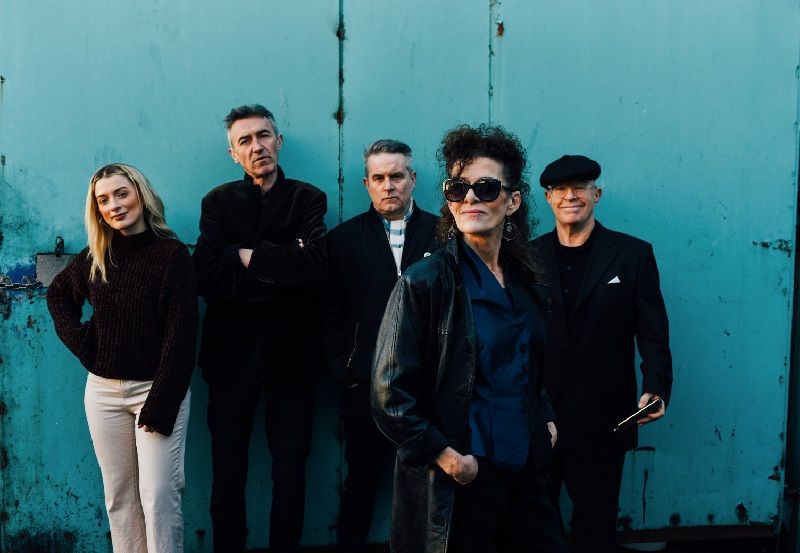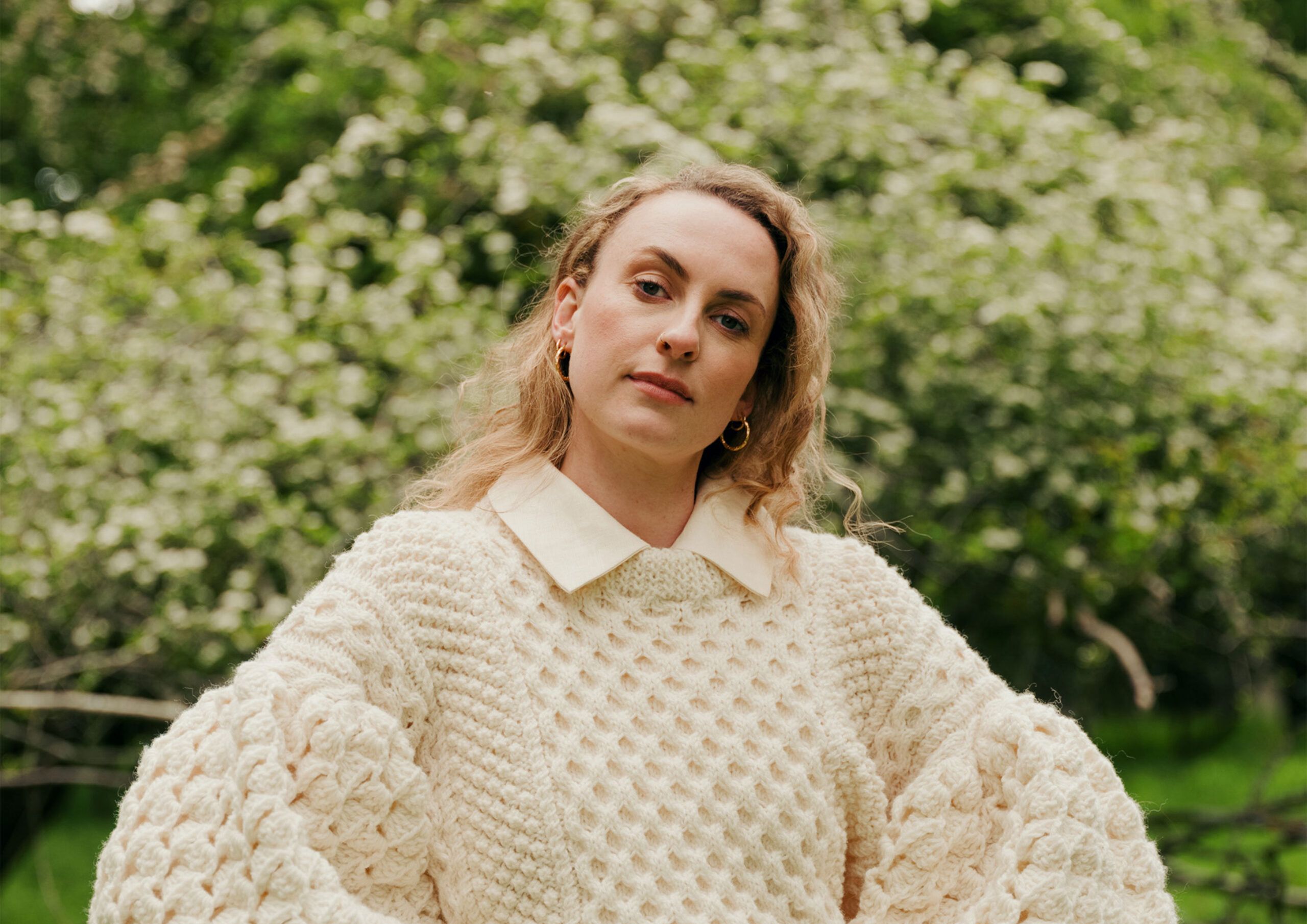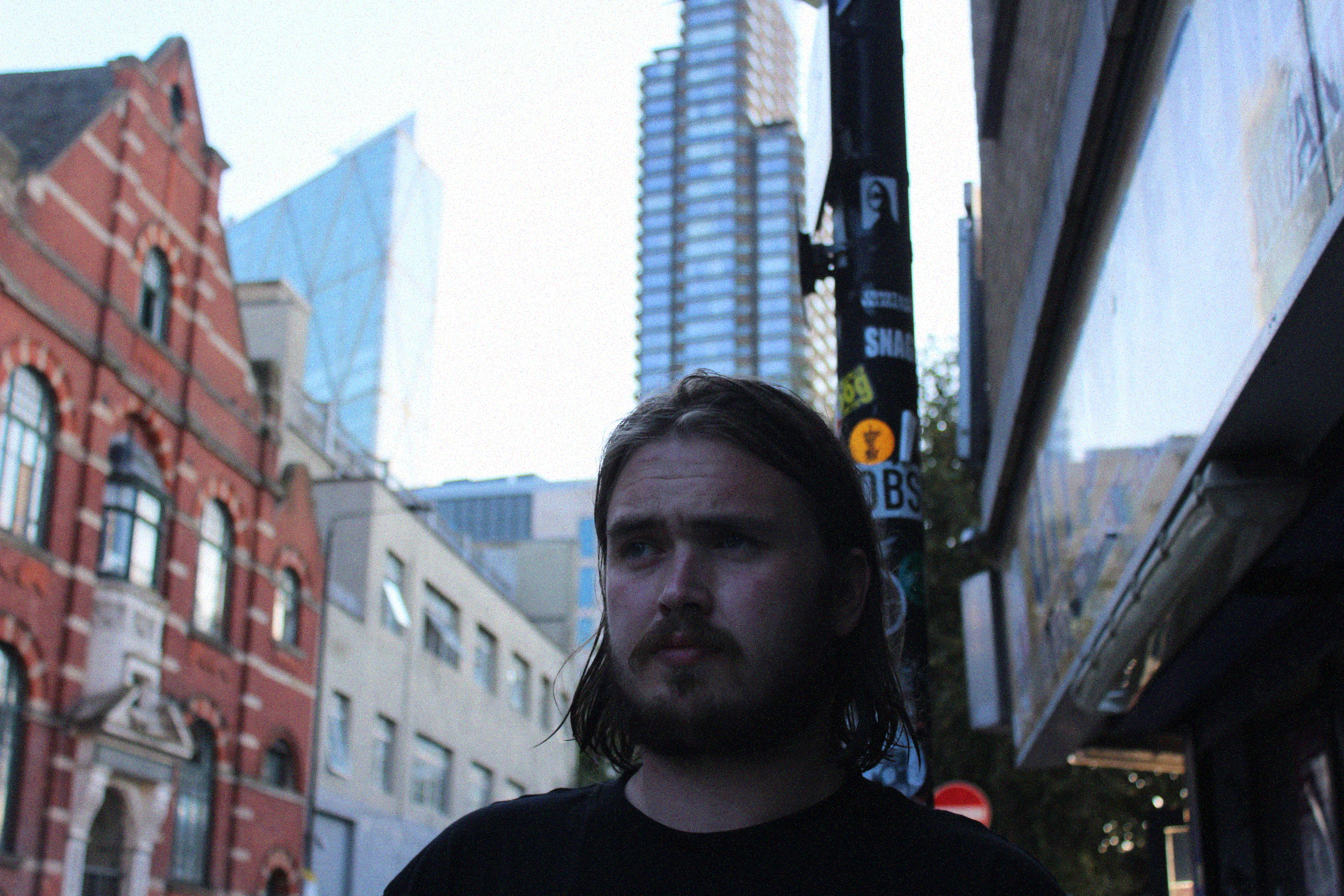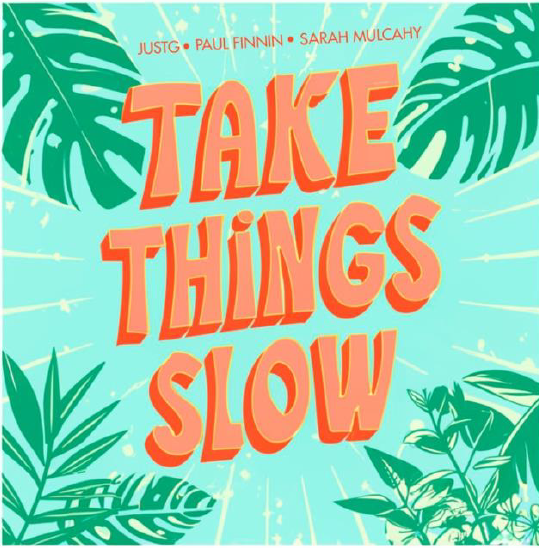Daithí Releases New Album ‘I’m Here Now’
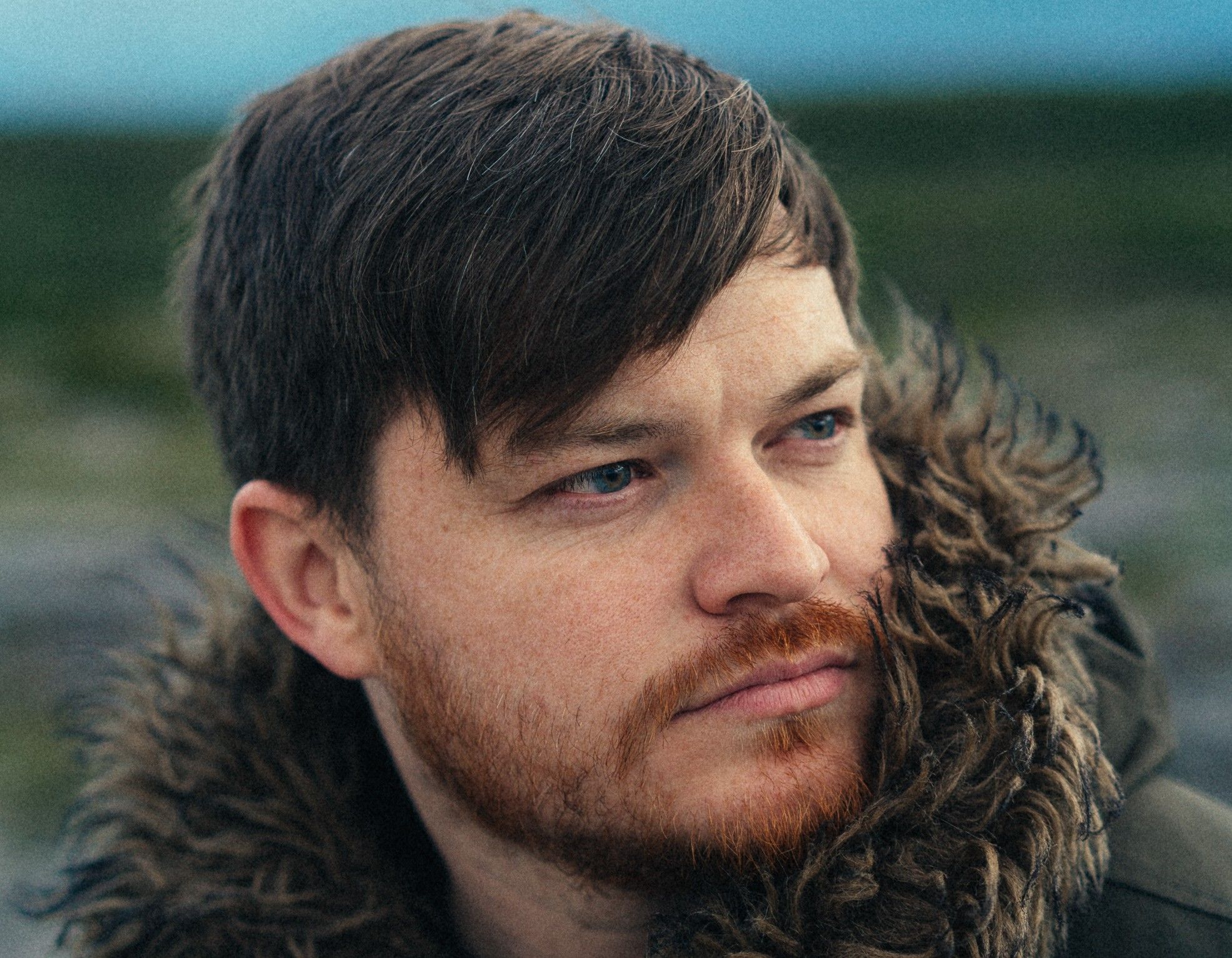
Acclaimed Irish electronic musician Daithí releases his third L.P. today, Friday, 9th September via Strange Brew. He also shares the focus track ‘Keep It For The Next One,’ featuring Neil Dexter. The dancefloor-ready pop single keeps the listener on their toes, the sublime melody transforming as buzzing, Daft Punk-esque synths come in.
As for the album, I’m Here Now starts where it must—at the end.
A sunset stretches out, led by the commanding presence of long-time collaborator Ailbhe Reddy. ‘Sunset’ serves as the closing of one journey—2019’s critically acclaimed, RTÉ Choice Music Prize-nominated L.O.S.S., an album that found Daithí O’Dronaí confronting his most personal questions up to that point in his life—and the start of another.
I’m Here Now, Daithí’s new album, is an exploration of the past, present and future. It speaks to where Daithí is in his life at the precise moment you’re reading these words, in addition to his experience of the past two years; a time that challenged just about every living creature on the planet in ways nobody could have imagined.
For Daithí, having closed out his twenties during this period, it was crucial to capture as much lost time as possible. ‘Sunset’ and the initial genesis of I’m Here Now was indeed born out of isolation, but it was more of a shared, purposeful tranquillity as Daithí decamped to his own artist’s hideaway—The Beekeepers in his native Clare. It was here that the cast of supporting characters that make up his newest cinematic vision came together – Ailbhe Reddy and Sinéad White (‘Sunset’), David Tapley of Tandem Felix (‘Polypoly’), Uly (‘Like The Water’), and Neil Dexter (‘Keep It For The Next One’).
The overall approach also meant finding a place for long-standing, dust-gathering documents, like when Daithí travelled to Slieve League in Donegal in 2015 to record the surrounding local harmonies—you’ll hear the creak of a heavy, rattling farm gate on the title track, for instance, ultimately used as a punctuation mark.
“It felt like I was holding onto that sample forever,” says Daithí. “I could just never figure out where to put it. This record was the first time where I knew, ‘This is the exact place for it to go’.”
Throughout the album, Daithí takes the time to honour the legacy of those who carved out the path he now strides. His grandfather Chris Droney, revered in Irish traditional music circles as much for his personality as his signature playing style, is very much present in Daithí’s decision to use a concertina on the title track—the instrument that his grandfather was rarely seen without.
“He was the real leader of the family and had been for his entire life—he was referred to as ‘The Boss’ right up until he died,” Daithí says.
“If you were doing anything in music, you would run it by him and he would let you know, in his way, whether it was the right or wrong thing to do.”
“When I first went into music and started playing electronic and dance, I didn’t think he would approve,” Daithí recalls, “But he was so happy that I was doing something in music, and something new with it, too. He was, and is, a massive, massive inspiration.”
Also providing fresh encouragement—the idea of truly testing oneself; as a musician, as a storyteller, as an individual who has really come to appreciate the value in letting these songs speak for themselves in a way they hadn’t before.
This attitude is reflected most prominently in the one-two punch of ‘Polypoly’ and ‘Like The Water’, two movements that find Daithí—and guest vocalists David Tapley and Uly—finding liberation in letting go.
“There’s a hypnotic poly-rhythm that drives ‘Polypoly’—the hope is to unsettle the listener’s expectations a bit, to force them not to be in control so much and not to know where the next note is coming from,” Daithí says.
“‘Like The Water’, then, takes that idea and brings it to an extreme. You start off with a quiet, calm acceptance but as it progresses, we build it out, just getting bigger and bigger, layer upon layer until it eventually explodes. You have to reach that side of it—there’s a danger to completely giving up control, after all.”
‘Joined’, which serves as I’m Here Now’s plaintive, Burial-adjacent interlude, adds uncertainty to the album’s narrative.
“When you’re really unsure of yourself and you don’t know where to go and it’s quite upsetting and you’re genuinely super-scared by it—that’s this track,” notes Daithí.
A range of emotions filter through the nine tracks on display here. Quickly, those aforementioned fears melt into a heartfelt sense of self, one that guides the author—and so too the listener—to a place of solace that holds excitement for the future.
Playfulness abounds, and confidence with it. Take lead single ‘Familial’, for example, and its beautifully-realised video accompaniment courtesy of award-winning New Zealand filmmaker Ayla Amano. The video, a short film in and of itself, presents the well-worn fractures of a family through the strains of a father-son relationship, culminating in a cathartic release that ‘Familial’ totally comprehends, not least when Daithí taps into—and updates—a notably old sean-nós recording to both ground and elevate proceedings.
“There’s a culture in the west of Ireland where it’s accepted that you hide your feelings, a very male, old-Irish way of life,” says Daithí.
“Ayla was really taken with the huge amount of similarities between Irish culture and Pacific Island culture, particularly how men interact with one another. She thought it would be interesting to draw ties between two wildly different worlds and showcase the connections between them.”
So, how do you bring the curtain down on this record? You look to the next adventure, of course.
‘Moonlight’, a seven-minute instrumental rush of euphoria that looks to redefine the term ‘sky-scraping’, was born out of something very simple though nonetheless crushingly painful – the disappearance of live music. Locked out, frustrated and crestfallen at the lack of being able to stand on a stage in front of people and deliver his music to them, Daithí ensured that he would have an impeccable shimmering ace up his sleeve when he got back to work. ‘Moonlight’ is that new calling card for the live arena, and a hell of an album closer.
“It’s a shock to the system,” says Daithí.
“It’s supposed to set you off, to jump you out of the album. I love that we start with ‘Sunset’ and then, a little over 30 minutes later, you’ve reached ‘Moonlight’ and it’s almost like you’re arrived at the after-party following a great show.
“You’ve gone through all of the things that people think will be the highest points of the night – but it’s the moments afterwards, the people you meet when you’re not expecting to, that you remember.
“‘Moonlight’ isn’t a complicated piece of music – and that’s the point. Sometimes, the best moments in music are the simplest, sometimes music lets you know that.”
Everything said, and everything left unsaid.
The record’s singles ‘Familial’ and ‘Sunset’ have already garnered praise from Irish media.
Nialler9 dubbed ‘Sunset’ one of their favourite songs of June, and the track has surpassed 900,000 radio impacts.
Daithí has long been an indie darling on the Irish music scene; his 2019 record, L.O.S.S., received a glowing four-star review from the Irish Times and the record, as well as his album released as one half of HousePlants (with Paul Noonan), were both nominated for the RTÉ Choice Music Prize.
Connect with Daithí
SPOTIFY | BANDCAMP | IG | TWITTER | FACEBOOK
Latest News
Music Creators
- Affinity Schemes
- Join IMRO
- Benefits of IMRO Membership
- IMRO Mobile App
- Members’ Handbook
- About Copyright
- Royalty Distribution Schedule
- IMRO Distribution Policies
- Competitions & Opportunities
- Travel Grant Form
- Irish Radio & Useful Contacts
- Other Music Bodies in Ireland
- Affinity Schemes
- Music Creator FAQs
- International Partners
- International Touring Guide
Music Users
- Do I Need a Licence?
- Sign Up for a Music Licence
- Pay Your Licence Online
- IMRO and PPI Tariffs
- Dual Music Licence Explained
- Music Licences for Businesses
- Music Licences for Live Events
- Music Licences for Broadcast & Online
- Music licences for Recorded Media
- Music Services B2B
- Music User FAQs
- What’s Your Soundtrack Campaign
- Terms & Conditions for IMRO Events Voucher Competition
- Cookie Policy
- Privacy Statement
- Disclaimer
- www.imro.ie
- Terms & Conditions
- © IMRO 2024
- Registered Number: 133321
Please select login
For Songwriters & Publishers
For Business Owners
